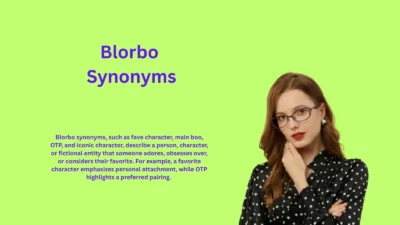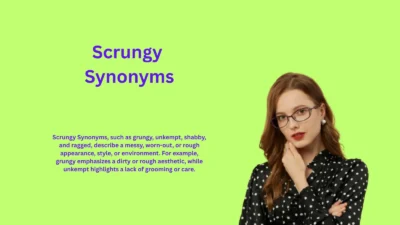Ploop synonyms, such as pop, plink, splat, and blip, describe small noises, minor mistakes, or silly/unexpected moments. For example, pop emphasizes a small, sudden sound, while blip highlights a minor error or interruption. These words capture the idea of lighthearted mistakes, whimsical sounds, or small mishaps.
If you’re writing about casual conversations, social media, gaming, or fun storytelling, using the right synonym for ploop helps your audience instantly understand the playful or minor nature of the moment.
These synonyms communicate minor errors, funny noises, or unexpected small events across casual, online, or humorous contexts.
What Does Ploop Mean?
A ploop refers to a small, often humorous sound, mistake, or minor mishap.
Key aspects of ploop
- Sound: Often imitates a light pop, plunk, or splat.
- Minor mistake: Refers to small or silly errors.
- Casual/Playful: Common in social media, messaging, or humorous writing.
Think of a ploop as a tiny, funny, or whimsical event — something small but noticeable enough to mention.
Synonyms for Ploop (With Meanings, Usage & Examples)
1. Pop
Meaning: A small sharp sound.
When to Use: Casual conversations, social media.
Example: “I heard a pop when the balloon burst.”
2. Plink
Meaning: Light, high-pitched noise.
When to Use: Sound effects, playful descriptions.
Example: “The coin made a plink as it hit the floor.”
3. Splat
Meaning: Sound of something soft hitting a surface.
When to Use: Casual writing, comic sound effects.
Example: “Tomatoes hit the wall with a splat.”
4. Blip
Meaning: Minor error or brief interruption.
When to Use: Casual, tech, or social media.
Example: “There was a small blip in the game server.”
5. Plop
Meaning: Soft drop or fall.
When to Use: Casual, playful, or descriptive writing.
Example: “The pebble fell into the pond with a plop.”
6. Boing
Meaning: Bouncy or springy sound.
When to Use: Comic or playful contexts.
Example: “The ball hit the trampoline with a boing.”
7. Ping
Meaning: High-pitched ringing or notification sound.
When to Use: Tech, messaging, or gaming.
Example: “I got a ping from the chat app.”
8. Bong
Meaning: Hollow, resonant sound.
When to Use: Playful or onomatopoeic writing.
Example: “The bell went bong, echoing down the hall.”
9. Snap
Meaning: Quick cracking or breaking sound.
When to Use: Casual writing, storytelling.
Example: “The twig made a snap under her foot.”
10. Crackle
Meaning: Series of small popping noises.
When to Use: Sound effects, narrative descriptions.
Example: “The firewood began to crackle in the fireplace.”
11. Tick
Meaning: Small, precise sound.
When to Use: Casual, tech, or clock-related.
Example: “The clock made a quiet tick.”
12. Click
Meaning: Sharp, brief sound.
When to Use: Tech, buttons, casual writing.
Example: “I pressed the switch, and it went click.”
13. Whomp
Meaning: Heavier, thudding sound.
When to Use: Playful or humorous descriptions.
Example: “The book landed on the floor with a whomp.”
14. Plunk
Meaning: Dropping sound into liquid.
When to Use: Casual storytelling or sound effects.
Example: “He dropped the coin into the fountain with a plunk.”
15. Fizzle
Meaning: Weak or fading sound.
When to Use: Casual, humorous, or comic writing.
Example: “The soda opened with a fizzle.”
16. Boop
Meaning: Gentle tap or sound.
When to Use: Playful, cute, social media.
Example: “I gave the dog a gentle boop on the nose.”
17. Blop
Meaning: Soft, plopping sound.
When to Use: Casual or comic contexts.
Example: “The jelly dropped with a blop on the plate.”
18. Bongle
Meaning: Comical, awkward sound.
When to Use: Humorous writing.
Example: “The toy fell with a funny bongle.”
19. Thud
Meaning: Heavy, dull sound.
When to Use: Descriptive, casual, storytelling.
Example: “The box hit the floor with a thud.”
20. Plibble
Meaning: Tiny, playful sound.
When to Use: Fun, informal writing.
Example: “Droplets fell with a soft plibble.”
21. Bling
Meaning: Light sparkling or small noise.
When to Use: Social media, casual writing.
Example: “The ornament hit the floor with a tiny bling.”
22. Boop-boop
Meaning: Repetitive, playful sound.
When to Use: Humor, casual writing.
Example: “The ball bounced boop-boop down the stairs.”
23. Splosh
Meaning: Wet, splashing sound.
When to Use: Playful, descriptive writing.
Example: “He jumped into the puddle with a splosh.”
24. Drip
Meaning: Small, falling water sound.
When to Use: Descriptive or casual writing.
Example: “The faucet made a drip every few seconds.”
25. Zing
Meaning: Quick, high-pitched sound.
When to Use: Casual, comic, or playful writing.
Example: “The arrow flew past with a zing.”
26. Flip-flop
Meaning: Light, back-and-forth sound.
When to Use: Playful, casual storytelling.
Example: “The sandals made a flip-flop sound on the floor.”
27. Splut
Meaning: Soft splattering noise.
When to Use: Comic, playful, casual.
Example: “The paint dropped with a splut on the paper.”
28. Plib
Meaning: Tiny, quick sound.
When to Use: Informal, playful contexts.
Example: “The candy hit the table with a plib.”
29. Blap
Meaning: Short, sharp sound.
When to Use: Casual, comic, or storytelling.
Example: “The ball bounced off the wall with a blap.”
30. Ploop
Meaning: Small, funny sound or minor silly mistake.
When to Use: Casual, social media, or comic storytelling.
Example: “I spilled juice on the table — total ploop moment.”
How to Choose the Right Synonym for Ploop
The right synonym depends on context, tone, and audience:
| Context | Best Choices |
|---|---|
| Sound Effects / Comic | Ploop, splat, plink, boing, blop |
| Minor Mistakes / Mishaps | Blip, minor error, fizzle, drip, plibble |
| Playful / Social Media | Boop, boop-boop, zing, flip-flop, blap |
| Descriptive / Casual Writing | Plop, thud, plunk, splosh, flimsy |
💡 Tip: Use ploop, plop, or blop for playful sounds, and blip or fizzle for minor mistakes or interruptions.
Conclusion
The synonyms of ploop allow writers to describe small noises, minor mistakes, or playful moments across casual, social media, gaming, and humorous contexts. Words like pop, plink, and plop capture the sound, while blip, fizzle, and minor error highlight minor mishaps.
Using the right synonym ensures your writing is fun, expressive, and relatable, whether you’re describing silly mistakes, playful sounds, or whimsical events.



